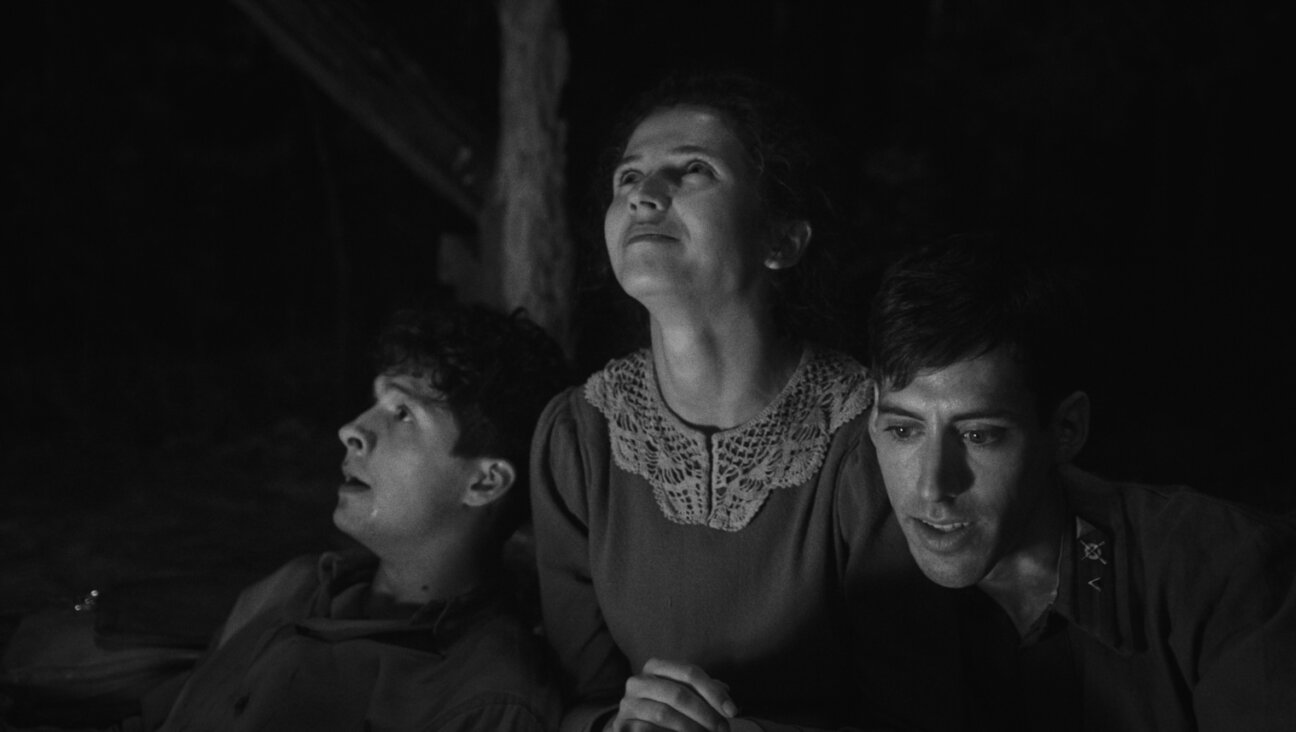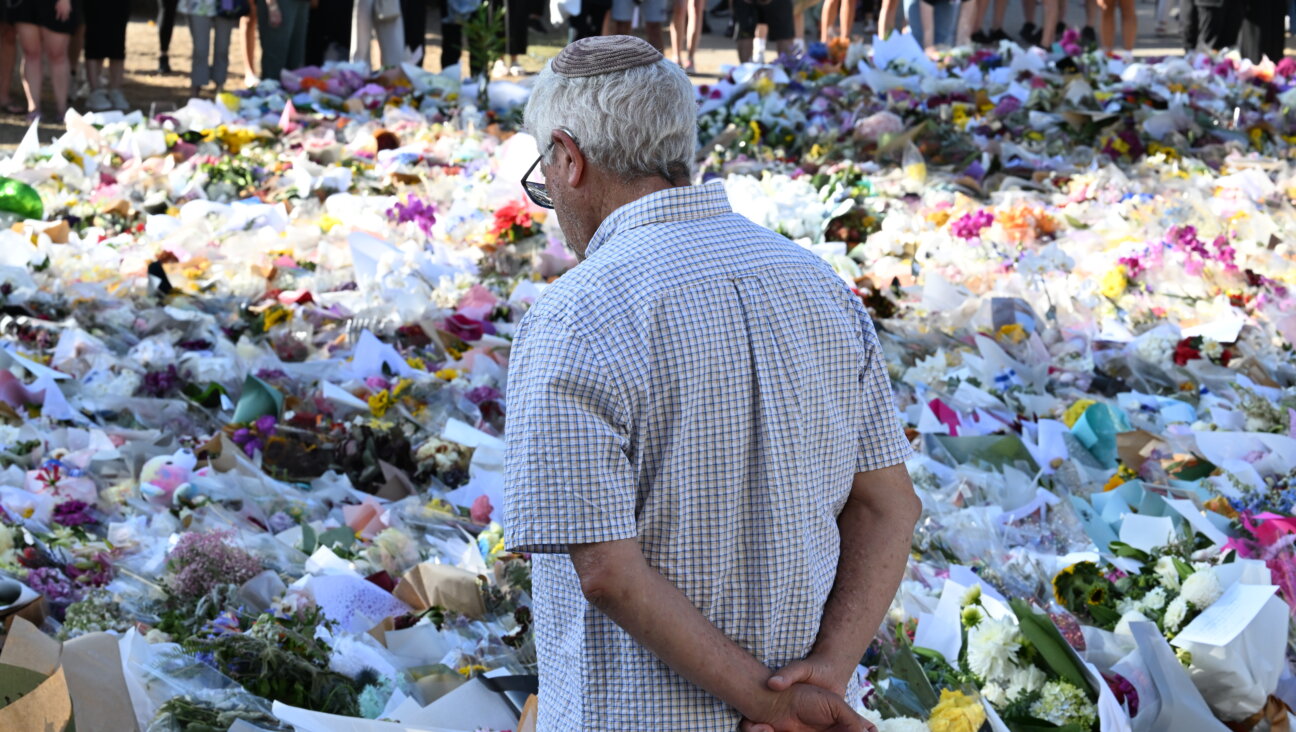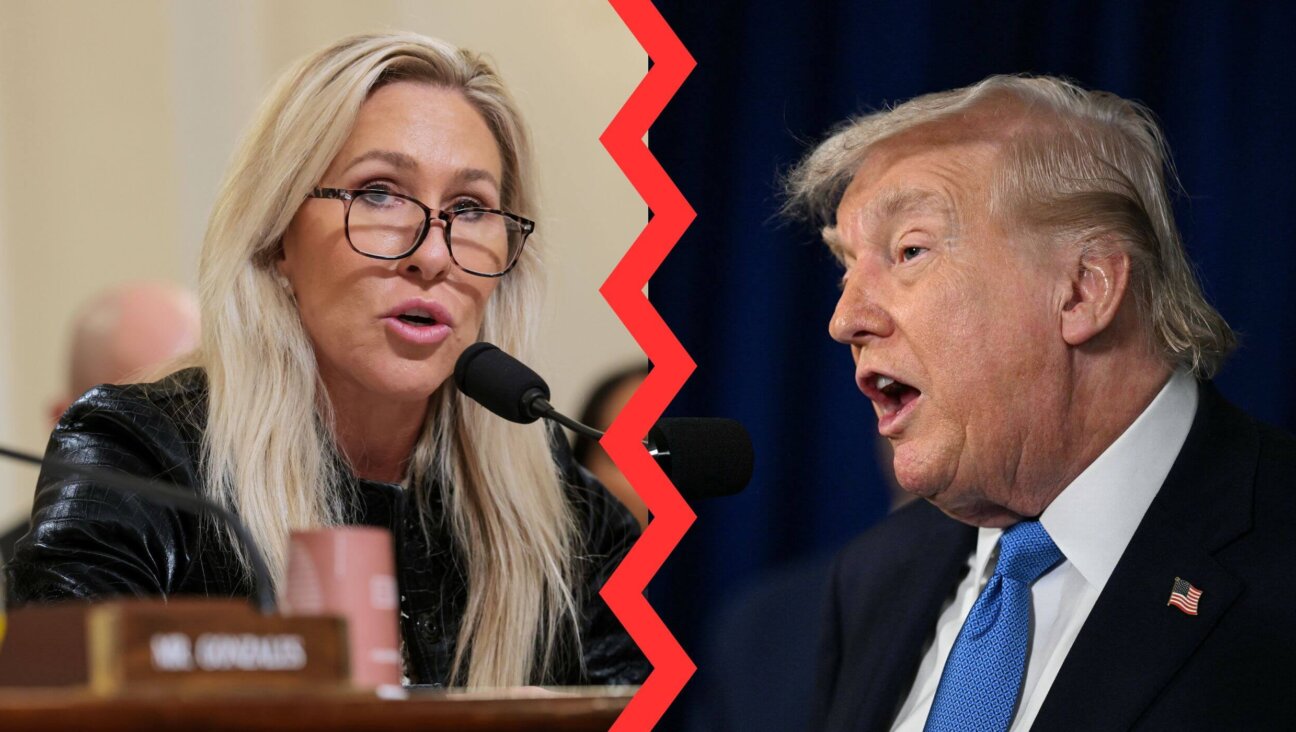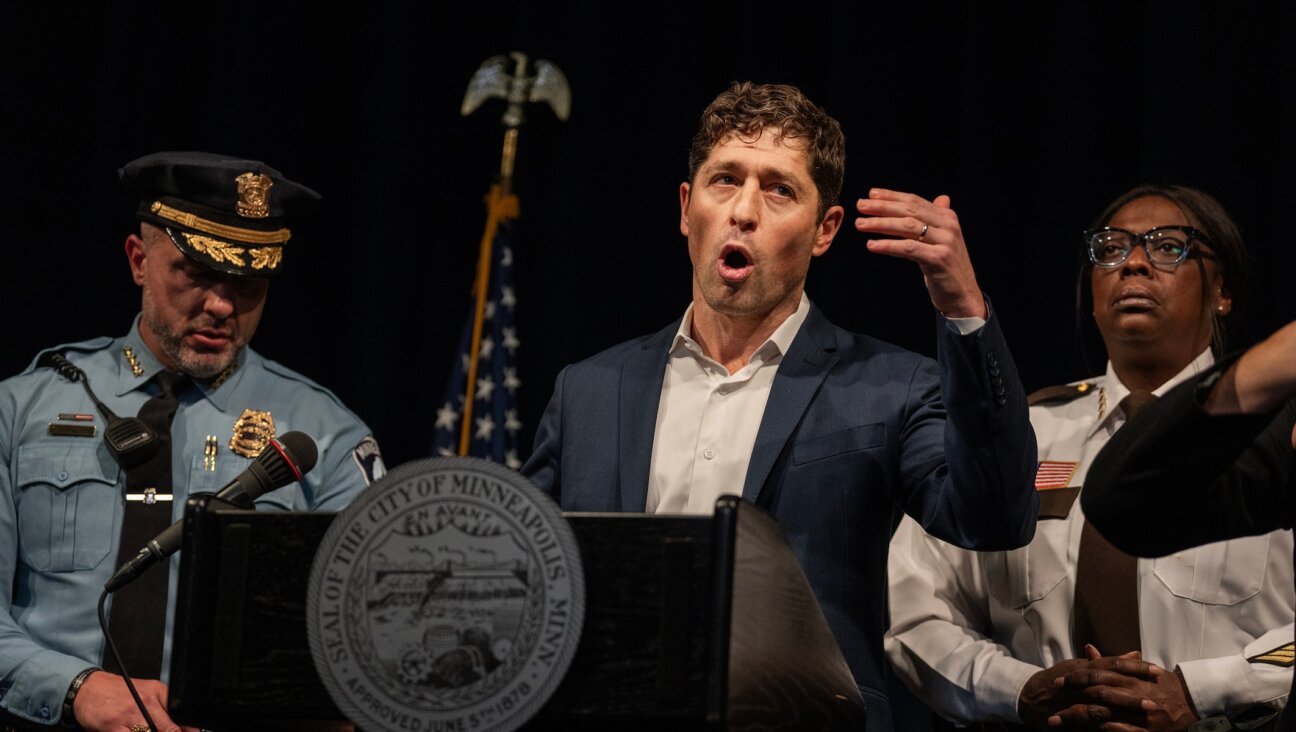How Did Ed Koch Do It?

I?m With Schmuck: Ed Koch stands beside Governor Andrew Cuomo, whom he once described with a common Jewish epithet. Image by Getty Images
Ed Koch thinks Andrew Cuomo is a schmuck.
He says so in an aside caught on camera by the makers of “Koch,” an excellent new documentary about the former New York City mayor that opens February 1 in New York. Cuomo’s specific offense is unclear: It’s election night in 2010, and he’s just been declared governor, and Koch has been told that Cuomo won’t see him.
It’s a delightful, seemingly unguarded remark from the 88-year-old who specializes in delightful, seemingly unguarded remarks. The quip comes shortly after we see Koch endorsing Cuomo in the 2010 governor’s race, assuring a reporter at a press conference that no hard feelings are left over from Koch’s earlier political battles with the Cuomo family — particularly from 1977, when Koch defeated Andrew Cuomo’s father Mario in the Democratic mayoral primary.
No hard feelings? Yeah, right. “Koch,” directed by former Wall Street Journal reporter Neil Barsky, reveals that for the Mayor, politics is everything and no political grudge is ever forgotten.
You could follow Koch around with a camera for a day and get enough quirky Koch-isms for three documentaries. As I wrote in a profile earlier this year, Koch is aware of his nostalgic cachet, and he knows how to employ it for effect. Barsky has taken advantage of that, to some degree: There’s a one-liner in particular involving Koch’s prostate and George Pataki that should go on Koch’s tombstone. (It can’t, as Koch’s tombstone is already carved and installed at a Manhattan cemetery, as we see in the film.)
Barsky, however, doesn’t leave it there. The movie takes us through Koch’s political career, from his East Village days battling Tammany Hall don Carmine De Sapio (who looks a bit like Dr. Strangelove) to the corruption scandal that nearly disgraced his administration. Most impressive is a segment on Koch’s decision to close Sydenham Hospital, a Harlem institution that employed a large number of African-American doctors. Decades later, some politicians who opposed Koch’s move at the time still feel betrayed. Koch offers an apology — but it’s not even half-hearted.
“I made a mistake,” Koch admits. Then, as if unable to help himself, he goes on. “I should have given in to the same terror that the three mayors before me had given in [to], and then there would have been no problem,” he says, and laughs.
Why Koch holds on to these old battles is the movie’s key mystery. It may be that he doesn’t have much else to do. Koch lives alone in a downtown apartment, and though we see him enjoying his friends and family, we also see him arrive home at night to a dark front hall.
Koch took some political slights very hard. Wounds from the 1977 Cuomo fight, in particular, seem fresh. The documentary shows Koch and his team going to great lengths during that first mayoral campaign to cover up the press’s questions about Koch’s sexuality. There’s a shot of a sweaty, uncomfortable-looking Koch being asked why he isn’t married, then an adviser talking about the decision to have Bess Myerson, a former Miss America and New York City’s first commissioner of consumer affairs, “paired” with Koch. The suggestion was that they were an item: Koch even calls her “the first lady” in a clip that was shot at the time. In a contemporary interview, however, Koch says he had no romantic relationship with Myerson.
The film nods openly to the suspicion that Andrew Cuomo was behind fliers surreptitiously distributed throughout the city at the height of the 1977 campaign that read, “Vote for Cuomo, Not the Homo.” Koch says that he complained to Mario Cuomo about the signs, but nothing was done.
In an indication of how deeply the conversations about his sexuality upset Koch, the film suggests that his 1987 stroke was brought on by stress over the possibility that a story was about to appear in the press linking him to a man named Richard Nathan. When an interviewer, presumably Barsky, directly asks Koch whether he is gay, the response is convoluted, if resigned.
Koch’s recent career as an unremitting Israel hawk plays almost no role in this film. Instead, this is a movie about a deeply charismatic, racially divisive, brilliant mayor who has turned into a funny, sharp old man.
In one of the film’s last scenes, New York City Mayor Michael Bloomberg addresses the crowd at Koch’s birthday party. Bloomberg is wooden as he unveils a sign renaming the Queensboro Bridge after Koch. Koch, speaking after Bloomberg, is brilliant, delightedly quoting F. Scott Fitzgerald. In the car ride home, Koch’s friend praises Bloomberg, saying that most mayors don’t go out of their way to promote former mayors.
Koch concurs. “I didn’t do a f**king thing for Abe Beame,” he says.
Josh Nathan-Kazis is a staff writer at the Forward.
















